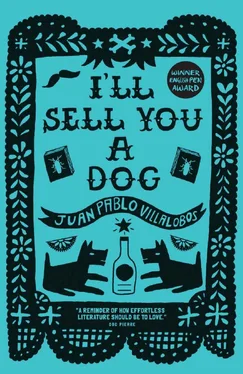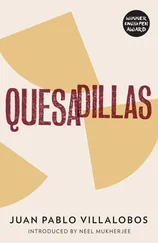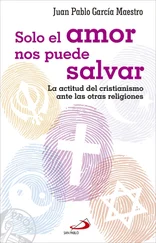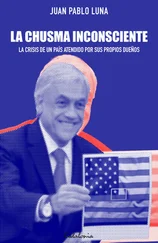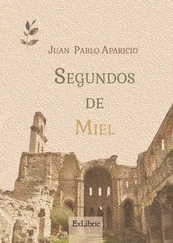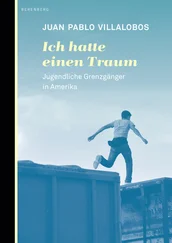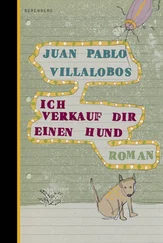Following a catechism manual, I suppose, he spent his time repeating that I was his mission, that he had come to Mexico to bring me the word of the Lord. And I replied: ‘You got here far too late, Villem, we’ve already had a load of those types: Franciscans, Dominicans, Humboldt, Rugendas, Artaud, Breton, Burroughs, Kerouac. The competition’s tough as hell!’
One day he tried to take a photo of me on his phone to send back to his family, who lived in a small town in Utah.
‘You’re making a mistake,’ I stopped him. ‘I’m not a stray dog.’
Dad sent a letter: he’d gone to live by the sea, just like President Ruiz Cortines wanted everyone to do. He was living in Manzanillo, with a job processing paperwork in the port. The letter was to my sister and me, and was written in blue ink in tiny, cramped handwriting, the letters all leaning to the right as if they were falling asleep. It was just one page but it took us a whole afternoon to decipher it. He said that ships arrived in the port from the United States and from China and that last week there had been a north wind and he’d seen thirty-foot-high waves. We had never seen the sea, although we guessed this was meant to impress us. He said that the president of Manzanillo used to be a painter and a taxi driver, and that this proved how far anyone could go in life simply by making up their minds and persevering. He also told us he’d started painting again, and that he would get together after work with a group of artists on the docks to paint seascapes, and had sold an impressionist painting of a fishing boat to a tourist from Guadalajara. Then came the last part, the reason for the letter and the bit that took us the longest to understand, because in addition to the handwriting, we weren’t old enough yet to comprehend other-worldly aspirations. My father was requesting that when he died, we incinerate him and scatter his ashes in an art gallery, ‘where they belonged’. He said he wanted the dust from his bones to float among the artworks and be breathed in by sensitive people, ‘sticking to their clothes and travelling around on the threadbare lapels of new artists’ coats’. Along with the note, my father had sent us three pesos: the cost of four and a half pounds of beans. Mum refused to read it, but when we went to bed we left it on the kitchen table, as if we’d forgotten it. I discovered later that the president of Manzanillo had been a house painter, not a painter of pictures, as I’d thought for some time. And that he’d been the leader of the taxi drivers’ union, which contradicted my father’s motivational theories. Thesis. Antithesis. So life went on.
I went to look for the dog’s body in the Jardín de Epicuro and found it under some bushes, where it had dragged itself to try and puke up the stocking. I couldn’t believe it: it was a Labrador, huge and black. Or rather, yes, I could believe it: I knew I was dealing with literary fundamentalists, people capable of killing a family pet and, on top of that, of abandoning the body for no good reason other than to preserve the sacrosanct peace they needed to concentrate on their reading and dilettantism. I covered the corpse with a pile of twigs and leaves and walked over to the butcher’s on the corner, the same one that had given the salon members the deadly animal skins.
I didn’t know the butcher, having never needed to avail myself of his services until that day. From Monday to Saturday I ate in a budget restaurant and on Sundays I made do with bar snacks from the place on the corner. I sat down to wait on the bench outside the shop until there were no customers around to mess up the operation. I had to wait fifteen, twenty minutes. Eventually I was able to go in and I wasted no time; I couldn’t risk someone coming in and surprising us halfway through the negotiation.
‘I’ll sell you a dog,’ I announced.
‘What?’ replied the butcher.
He was carving a piece of meat that didn’t look like beef, or pork, or anything advertised on the colourful posters pinned to the walls.
‘I’ll sell you a dog,’ I said again.
He let his knife fall, looked up and quivered behind his apron covered in blood as if his ribcage were a barrel full of tacks in an earthquake.
‘What the hell are you talking about?’
‘I’ve got a dog just around the corner, in the Jardín de Epicuro. It’s just died, it’s perfectly healthy, it choked on a stocking.’
‘A dog?’
‘It’s a Labrador, it must weigh between thirty and forty kilos. The whole thing’s yours to use if you want it.’
The butcher picked up his knife again, but did not resume his task. I feared the implement would interpret the signals the butcher was sending it and decide to switch roles: from work tool to murder weapon.
‘Is this a joke?’ he said.
‘Don’t play dumb, I was a taco seller my whole life, I had a stand in the Candelaria de los Patos. I know perfectly well how this works.’
‘Are you a health inspector?’
‘At my age? If they raised the retirement age that much even the dead would have to start working.’
‘Empty your pockets, show me your wallet.’
I obeyed, striving to show him I didn’t represent any organisation or institution concerned with the illegal trade in dog meat or the observation of hygiene standards in butchers’ shops. This was easy, because as well as not representing these organisations, I didn’t look like I did either.
‘You see?’ I said. ‘You can trust me.’
‘I’ll give you some advice: go and see your geriatric specialist and tell him you’re losing touch with reality.’
‘Are you going to keep acting dumb? What’s that meat you’re cutting? I’ll tell you one thing, it’s not beef or pork. Who are you trying to kid?’
‘This?’ he said, pointing at the chunks of meat with the tip of his knife. ‘This is horse, Grandpa.’
‘If you don’t want to buy it I’ll pay you to chop it up for me. How much would you charge? I’m sure I can flog it to a taco seller.’
He raised his knife and pointed straight ahead with it, not threateningly, just using it to indicate the shop door. One of the indisputable advantages of being old is that most people end up taking pity on little old men, even if they don’t deserve it. It’s enough to make you become a serial killer.
‘You’re even more cracked than you look,’ he said. ‘If you don’t beat it now I’m going to call the police.’
I walked out and mentally ran through my daily stroll to see if I could recall another butcher. Nothing. I sat down to think on a bench in the Jardín de Epicuro; it seemed to me some sort of conclusion had to be drawn from what had just happened. How was it possible that a specimen weighing at least thirty kilos, strong, healthy and well-fed, could end up on the rubbish heap or, even worse, buried? All of a sudden I felt infinitely old, as old as the world. The country had changed, it wasn’t the same any more, it was a place I no longer recognised: this was why the tacos were so bad.
I was about to get up from the bench to plod slowly back home when I heard the shout: ‘Here he is, ma’am!’
A maid in uniform was crouching near the bush where the dog’s corpse lay. Behind me, a 4 x 4 pulled up with a squeal of tyres, one of those cars made by gringos for one of their endless wars. There were potholes the size of trenches in the road, but even so this was over the top: Iraq was a long way off. A young couple got out and ran towards the park, with three children following them. The maid shouted again: ‘No! Not the children!’
The mother, or the woman I guessed was the mother, turned and encircled them in an embrace to stop them coming any further. The man came over to the dog’s corpse.
Читать дальше
